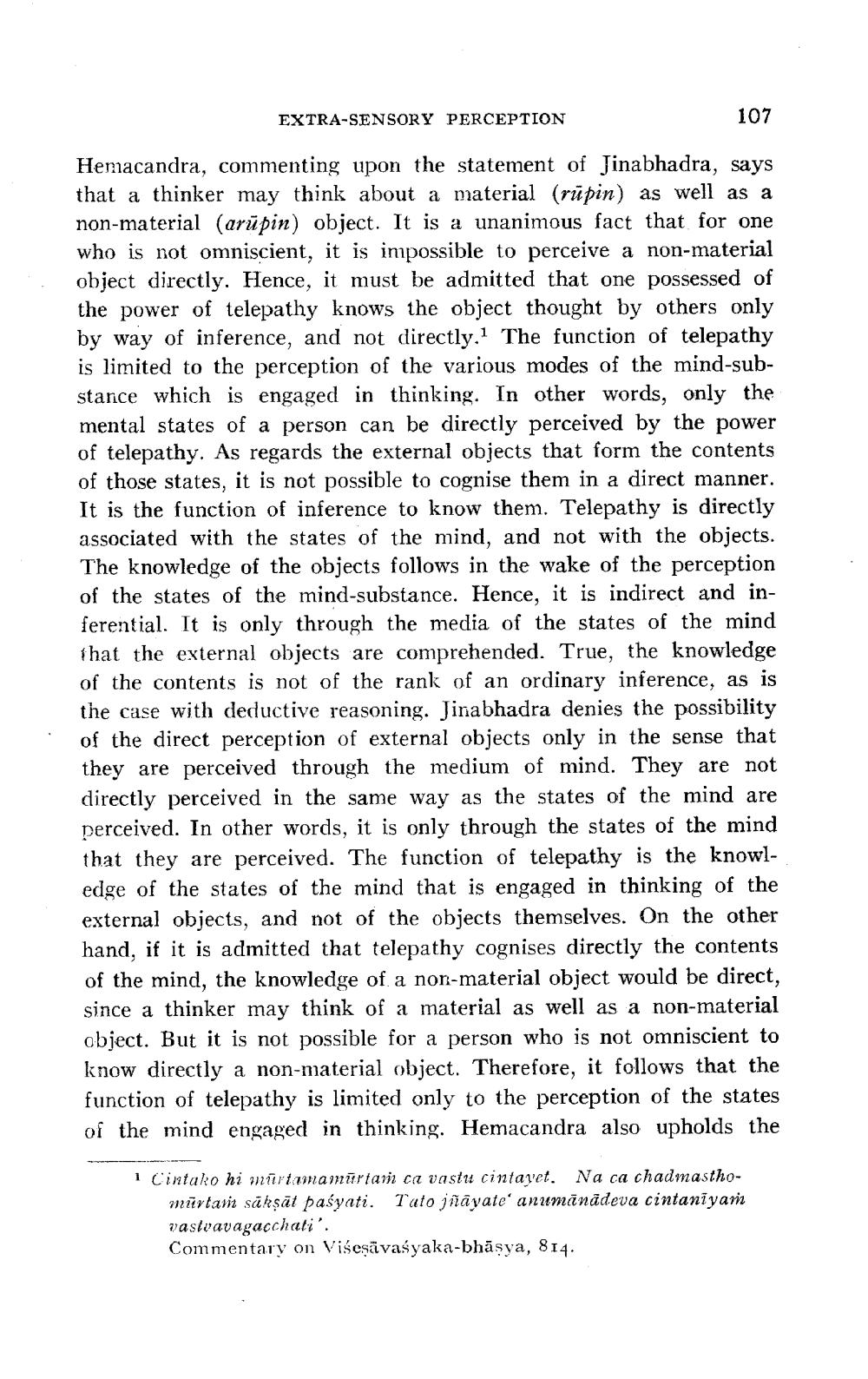________________
EXTRA-SENSORY PERCEPTION
107
Hemacandra, commenting upon the statement of Jinabhadra, says that a thinker may think about a material (rūpin) as well as a non-material (arūpin) object. It is a unanimous fact that for one who is not omniscient, it is impossible to perceive a non-material object directly. Hence, it must be admitted that one possessed of the power of telepathy knows the object thought by others only by way of inference, and not directly. The function of telepathy is limited to the perception of the various modes of the mind-substance which is engaged in thinking. In other words, only the mental states of a person can be directly perceived by the power of telepathy. As regards the external objects that form the contents of those states, it is not possible to cognise them in a direct manner. It is the function of inference to know them. Telepathy is directly associated with the states of the mind, and not with the objects. The knowledge of the objects follows in the wake of the perception of the states of the mind-substance. Hence, it is indirect and inferential. It is only through the media of the states of the mind that the external objects are comprehended. True, the knowledge of the contents is not of the rank of an ordinary inference, as is the case with deductive reasoning. Jinabhadra denies the possibility of the direct perception of external objects only in the sense that they are perceived through the medium of mind. They are not directly perceived in the same way as the states of the mind are perceived. In other words, it is only through the states of the mind that they are perceived. The function of telepathy is the knowledge of the states of the mind that is engaged in thinking of the external objects, and not of the objects themselves. On the other hand, if it is admitted that telepathy cognises directly the contents of the mind, the knowledge of a non-material object would be direct, since a thinker may think of a material as well as a non-material object. But it is not possible for a person who is not omniscient to know directly a non-material object. Therefore, it follows that the function of telepathy is limited only to the perception of the states of the mind engaged in thinking. Hemacandra also upholds the
i Cintako hi martamamūrtam ca vastu cintavet. Na ca chadmastho
murtari sākṣāt paśyati. Tato jñāyate' anumānādeva cintanīyar vastvavagacchati'. Commentary on Višeşāvasyaka-bhāsya, 814.




